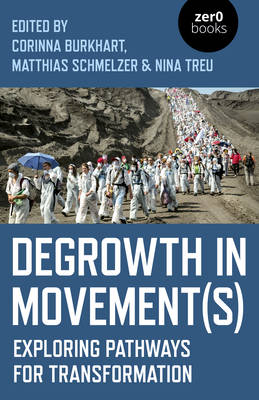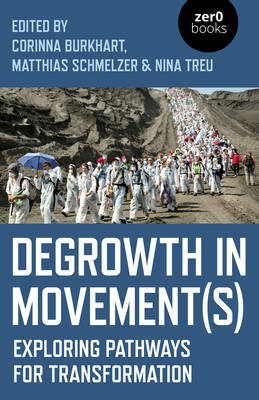
Je cadeautjes zeker op tijd in huis hebben voor de feestdagen? Kom langs in onze winkels en vind het perfecte geschenk!
- Afhalen na 1 uur in een winkel met voorraad
- Gratis thuislevering in België vanaf € 30
- Ruim aanbod met 7 miljoen producten
Je cadeautjes zeker op tijd in huis hebben voor de feestdagen? Kom langs in onze winkels en vind het perfecte geschenk!
- Afhalen na 1 uur in een winkel met voorraad
- Gratis thuislevering in België vanaf € 30
- Ruim aanbod met 7 miljoen producten
Zoeken
Degrowth in Movement(s)
Exploring Pathways for Transformation
Nina Treu, Matthias Schmelzer, Corinna Burkhart
Paperback | Engels
€ 29,95
+ 59 punten
Omschrijving
Degrowth is an emerging social movement that overlaps with proposals for systemic change such as anti-globalization and climate justice, commons and transition towns, basic income and Buen Vivir. Degrowth in Movement(s) reflects on the current situation of social movements aiming at overcoming capitalism, industrialism and domination. The essays ask: What is the key idea of the respective movement? Who is active? What is the relation with the degrowth movement? What can the degrowth movement learn from these other movements and the other way around? Which common proposals, but also which contradictions, oppositions and tensions exist? And what alliances could be possible for broader systemic transformations? Corinna Bukhart, Matthias Schmelzer, and Nina Treu have curated an impressive demonstration that there are, beyond regressive neoliberalism and techno-fixes, emancipatory alternatives contributing to a good life for all. Degrowth in Movement(s) explores this mosaic for social-ecological transformation - an alliance strengthened by diversity.
Specificaties
Betrokkenen
- Auteur(s):
- Uitgeverij:
Inhoud
- Aantal bladzijden:
- 360
- Taal:
- Engels
Eigenschappen
- Productcode (EAN):
- 9781789041866
- Verschijningsdatum:
- 1/06/2020
- Uitvoering:
- Paperback
- Formaat:
- Trade paperback (VS)
- Afmetingen:
- 137 mm x 213 mm
- Gewicht:
- 430 g

Alleen bij Standaard Boekhandel
+ 59 punten op je klantenkaart van Standaard Boekhandel
Beoordelingen
We publiceren alleen reviews die voldoen aan de voorwaarden voor reviews. Bekijk onze voorwaarden voor reviews.









